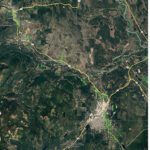Home »

Project improves access to healthy local food
Everyone deserves to have access to food that is nutritious and safe in order to achieve good health, productivity, and a sense of wellbeing.
Interior Health, through the Community Food Action Initiative (CFAI), has recently provided a total of $60,000 to help build food security in four local areas: Cranbrook/Kimberley, Canoe/Dog Creek, Kamloops and Nelson. The initiative is part of a province-wide strategy to increase food security programs and encourage British Columbians to make healthy food choices.
“Here in the Interior, we are fortunate to have access to a strong local agricultural community,” said Health Minister Terry Lake. “However, despite that there remain barriers to access. Access to a healthy diet is crucial to maintaining good health, so this funding will help grow local health as well as local food production.”
A food secure environment is one that makes healthy eating an easy choice now and in the future.
“Food security is about making sure everyone has easy access to healthy, affordable, locally grown foods,” says Rose Soneff, Community Nutritionist, with Interior Health’s Food Security and Community Nutrition program. “Achieving food security is a team effort – communities, businesses, organizations and governments all have an important role to play and that is why we are pleased to be able to support these exciting projects.”
The East Kootenay Community Eats Project (Community Eats), proposed by the Cranbrook Food Action Committee and Wildsight Kimberley Cranbrook, is a dual community food security initiative encompassing the entire cycle of food, from planting and harvesting to processing and consuming, while increasing collaboration among individuals, organizations, communities, and local government.
The project will build awareness of the necessity of a healthy and reliable food supply and provide further education on food security. Phase one will include extensive public consultation and networking to determine priorities. Phase two will include the construction of a community kitchen. In phase three, the project will undertake the development of shared kitchen and garden program.
The CFAI provides grants of $15,000 to be used in each community over the next three years to increase the community’s ability to contribute to the growth and development of their local food system. The funding focuses on current food security activities as well as future food security planning.
“The funding can be viewed as seed money – it is aimed at long term sustainable projects that will continue beyond the three year period,” said Soneff. “Project work that builds relationships with local government helps ensure food security is considered as a part of future community planning; whether that is within an official community plan, a sustainability plan, or land use, zoning, and municipal policies.”
CFAI is a collaborative effort between local communities, Interior Health’s community nutritionists, and the Ministry of Health.
For more information about food security and community nutrition, visit Interior Health’s website at http://www.interiorhealth.ca/YourHealth/HealthyLiving/FoodSecurity/Pages/default.aspx
Interior Health







